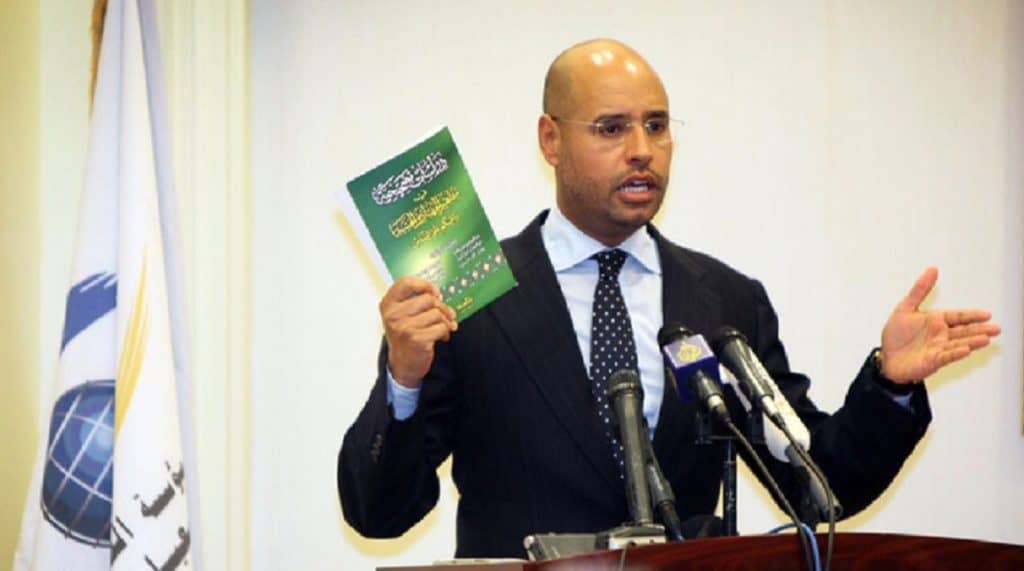By Denis Korkodinov
The main agenda of the G7 summit in Biarritz, in addition to US-Iranian tensions, was the Libyan crisis. The participants in the meeting came up with a general ceasefire initiative in Libya in order to subsequently seek a political solution to the conflict. Among other things, it was decided to organize an international conference on Libya, which would allow the warring parties to begin a full-fledged dialogue with each other.
Based on the fact that many states and influence groups are taking part in the Libyan conflict, the idea of holding an international conference seems to be very reasonable given that earlier attempts to motivate the LNA and the official Tripoli to come to an agreement did not bring tangible results. At the same time, the international community, taking the initiative to summit and discuss Libyan problems, seeks to push through its own interests related to the influence on Libyan energy resources.
The central government of official Tripoli was unable to independently confront the armed forces of Khalifa Haftar, and therefore external intervention remained only a matter of time. This was first confirmed by the military operations Dawn of the Odyssey (March 2011) and”The dignity of Libya” (April 2014), in which the international community was directly involved (USA, Egypt, UAE). .
The particular interest of Egypt and the United Arab Emirates was related to their intention to oppose “political Islam” and, above all, the “Muslim Brotherhood” as a striking manifestation of it. For this reason, both Abu Dhabi and Cairo decided to side with the Libyan National Army, which formally positions itself as the main fighter against the radical Islamization of Libya. In turn, the support provided to Khalif Haftar allowed the countries of the international coalition to strengthen their position in North Africa and use Libya as a platform for clarifying relations with each other.
This circumstance did not contribute at all to the settlement of the conflict in Tripoli, but, on the contrary, only increased tension. In this regard, the international community was forced to somehow create the appearance of a central authority in Libya by establishing in 2015 the Government of National Accord led by Fayez al-Sarraj. The choice of Fayez al-Sarraj is the result of an agreement between Washington and Rome. Algeria and Tunisia agreed with this decision, worried that Libya might be led by Khalifa Haftar, obsessed with the idea of a total transformation of Libyan institutions of governance and external relations.
However, after the election of Donald Trump as president of the United States, there was a restructuring in the Libyan theater of operations. The administration of the White House began to rapidly lose interest in Libya. This allowed France to revitalize its presence in the region. In July 2017 in the city of La Celle-Saint-Claude, on the initiative of Paris, a meeting took place between Khalifa Haftar and Fayez al-Sarraj, and, in May 2018, an international conference was organized, where the situation in Libya was a central theme.
Thus, the position of the Libyan National Army was significantly improved, while the official Tripoli turned into a “supporting actor”.
Libya began to actively pursue democratic reforms aimed at undermining the authority of Fayez al-Sarraj. In particular, one of the democratic transformations was the amnesty of former supporters of Muammar Gaddafi, who were extremely negative about the activities of the Government of National Accord. The second son of Muammar Gaddafi, Saif al-Islam, who in the recent past was the main candidate for the successor to the leader of the Jamahiriya, fell under amnesty.
As a result, Fayez al-Sarraj began to feel threatened. A strong opposition was forming under his eyes, but he could not do anything about it.
Khalif Haftar’s “trip to Tripoli” introduced some relief in the process of the collapse of the central authority in Libya. The unsuccessful military campaign of the Libyan National Army led to the fact that the international community began to doubt the adequacy of the actions of opponents of Fayez al-Sarraj.
Khalifa Haftar’s only salvation was Moscow’s loyalty to him. This allowed him to receive military support and avoid shame in the international arena. However, Moscow is interested not so much in supporting the Libyan field marshal as in strengthening its position in the region at its expense. Such a combination of circumstances put Khalif Haftar in a very vulnerable position: on the one hand, he is ready to lose to the forces of official Tripoli, which are significantly superior to the Libyan National Army militarily, but he cannot officially declare his surrender, since Moscow puts pressure on him. In this situation, he has only two options – either at all costs to achieve the overthrow of Fayez al-Sarraj, or to fight until the complete destruction of the armed groups loyal to him.
In addition to helping the head of the Libyan National Army, Moscow is also considering alternative options for influencing Libya. So, in July 2019, Russian political analyst, who were involved in organizing the election program of Saif al-Islam Gaddafi, were arrested in Tripoli. The order to arrest the Russians was personally issued by the head of the Libyan National Accord Government, Fayez al-Sarraj.
Based on this, we can conclude that Moscow is, to a certain extent, tuned to the restoration of the Jamahiriya regime. At least under Muammar Gaddafi, Russia had comparatively more privileges in Libya than under Fayez al-Sarraj. For this reason, Moscow supports both Khalifa Haftar and Saif al-Islam in the hope that with their help, Russian interests in Tripoli will be restored.
(The views expressed in this article belong only to the author and do not necessarily reflect the views of World Geostrategic Insights)
Image source: AFRIC







